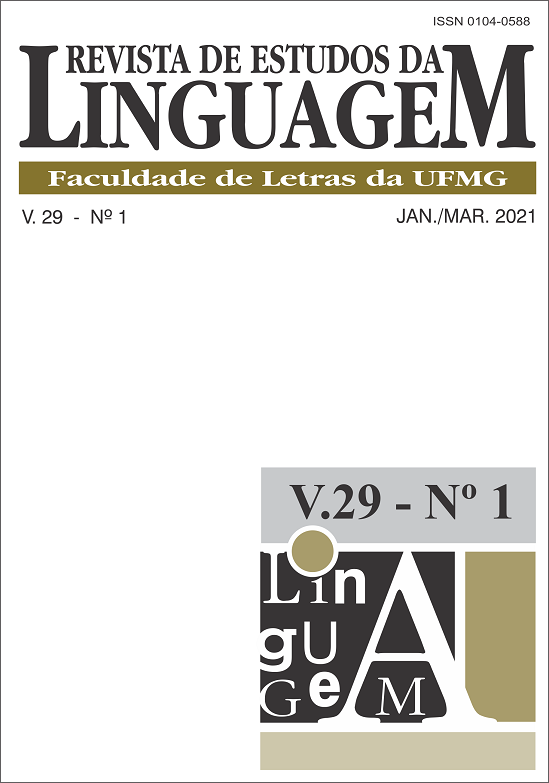Estilo, paixão e tensividade
dois casos de ciúmes
DOI:
https://doi.org/10.17851/2237-2083.29.1.589-617Palavras-chave:
paixão, estilo, fidúcia, tensividade, ciúmesResumo
Nossa atenção recai em paixões voltadas para a falta de confiança de um sujeito em relação a outro, como o ciúme. O abalo fiduciário remete a um modo peculiar de representação de mundo. Mas há estilos variados de ser ciumento, inquieto, desconfiado, decepcionado, enfim. Se forem consideradas totalidades discursivas postas em confronto, podem ser observados diferentes modos de presença, estilos distintos de ser apaixonado, a partir do exame desenvolvido em relação aos mecanismos de construção dos efeitos passionais. Assim, propomos para este estudo uma discussão sobre as questões teóricas envolvidas em tal problemática, seguida de uma análise comparativa entre dois estilos diversos de ser ciumento: o de Paulo Honório, protagonista de São Bernardo, de Graciliano Ramos, e o de Bentinho, do romance machadiano Dom Casmurro. Uma abordagem dessa natureza tem seu interesse no fato de que a passionalidade do ator da enunciação enunciada, como sujeito do afeto, pode ser recuperada por princípios teóricos e metodológicos que se afastam de um psicologismo e colocam o texto no lugar de onde ele veio: o discurso.





